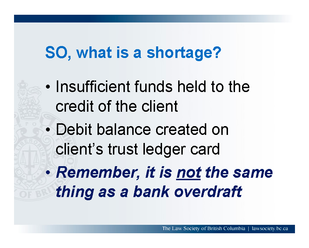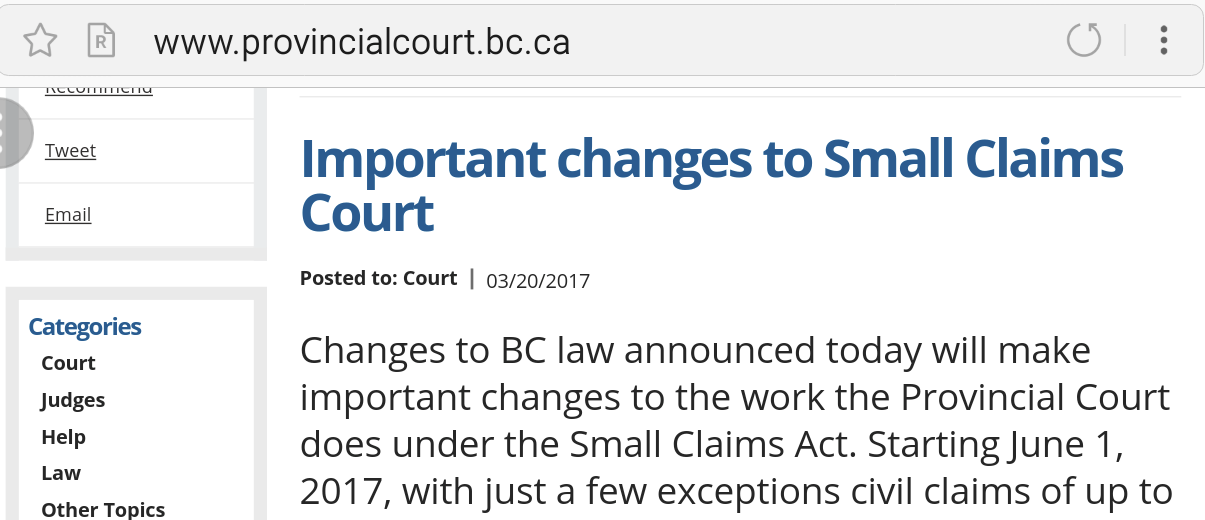|
I remember opening my first bank account a long time ago, I appreciated that the heavy doric columns that greeted me were symbols of tradition. The big balustrades symbolized stability. Banks are not what they were a long time ago. I wrote about the ongoing frustration with bank induced errors, in one instance I recommended to the administrator to fire their bank. (She hasn't.)
Earlier today, I drove to the parking lot of Lansdowne Mall to look for a 20 foot container re-purposed as a branch of Tangerine Bank (owned by Scotiabank). I spoke to the representative and was relieved to know that they had sound client identification and verification procedures in place. You can open an account online but you still need to come in with your ID and your SIN. The rest is done electronically or you can go to the ATM machines of any Scotiabank (but you cannot transact with a teller). Better interest rates notwithstanding, how many of you would open trust accounts with Tangerine Bank? In our classes like Law Office Accounting and Trust Accounting, we talk about the difference between a bank and a credit union. These two groups are used by law firms the most. Here is a list of banks who are licensed to operate in Canada. Here is a list of credit unions who are licensed to operate in BC. Do you prefer doing business with a bank or credit union? Is the insurance coverage enough to offset the lack of credit union branches? The expansive definition of financial institution is:
As you can see, there are other financial institutions. Odlum Brown for example, are used by lawyers acting as a fiduciary and are managing funds held in such an accounts. Let me leave you with this thought, given your firm's needs, what makes for a good financial institution. To firms looking for competent trust account staff, write or call me at 6046852727.
0 Comments
Our Provincial Court of BC has to be one of the most innovative courts in Canada. (Read McKenzie Friends, social media, the expansion of what judicial case managers' roles and court assignment system.)
On June 1, 2017, for claims up to $5000 (with a few exceptions), parties will be directed to resolve their claim using the online Civil Resolution Tribunal (CRT), under the Small Claims Act. Our provincial court hopes to see a significant number of cases being resolved outside its courts using technology. There are 3 attractive aspects to the CRT: 1. The on-line dispute resolution will be in 3 phases: negotiation, facilitation and adjudication. There is still a way to be heard by a judge. 2. Here are the areas of coverage:
Click here for your copy of the notice We will be releasing these in July, please refer to your copy of the BC Civil Litigation Guide. As well, if you are interested in training in the fundamentals of civil litigation, write me.  Talk about robots and artificial intelligence is going on these days. It inevitably surfaces when firms engage me to recruit legal support staff because machines can be trained to deliver consistent service without the many human attitudes and bad habits that seem to surface. Some of you might have taken this test that was posted by the BBC: Will a robot take your job? That there would be a 3.5% chance for barristers, solicitors and judges did not come as a surprise. The sobering forecast was there would be a 97.6% chance for legal secretaries (or legal administrative assistants, as we call them in YVR). Soon I think, unless, you have found a way to make yourself truly indispensable to your lawyer and the firm. It does not matter whether you are a floater or receptionist or a twenty year paralegal, you can become the go-to person in your office. You can be the person who everyone goes to if they have a problem they can not solve. Sound difficult? It is not simple, nothing worthwhile ever is, but it can be done. Because being the go-to person involves more than experience, more than legal knowledge, more than skills. It involves the right attitude and mindset, and I am not sure if there is an algorithm for a robot to use to get the right attitude and mindset. Here are seven ways you can do to robot-proof yourself and be valued as the go-to person in your office.
There is no reason you can not become the go-to person in your office. Just not try these simple steps and you will see how easy it is. You will also see how not satisfying it is to really master not just your job, but your place in the legal community. If you need a hand in preparing to move to a new workplace, write me.  A number of small practitioners have rung me up recently to talk about their staffing needs. One in particular struck me with his lament. "I need a secretary, Dom, they are not called that anymore, right? I need someone to help keep my clients' confidential matters. I have been sitting on this for some time now, since Spring time." Prodded a little bit more on why they have not hired one, it seemed that the last few they have hired have fallen short of their expectations. "I hired Mary 25 years ago, when I was just starting my practice, she was the one who showed me the ropes. I have lost count on how many times she saved my bacon. She knew what was more important. She knew when to chime in, but for the most part, she just did her work. Quietly. Too bad she retired. The young ones are not like her. High maintenance." I could not help but think about Star Trek's resident Betazoid Deanna Troi, who possessed a high level of emotional empathy (EQ); she served as an effective counselor to Captain Picard. In the real world, EQ is harnessed over time, often just by working with the lawyer closely. (Photo courtesy of www.startrek.com) I acknowledged that they were right: finding someone who had a high EQ would be challenging, but the key is to design a concise and clear job description to reflect your expectations. I told them: "A good place to start is to analyze the job as it exists today. Ask yourself what the work outcomes and descriptions of the tasks to achieve the outcomes are. Next update it for what you would like job to look like. Consider your practice plans, are you expanding or contracting specific practice areas?" Lisa Dawson, having practiced as a small firm administrator for over 20 years, suggests that your job description should include: For more, read here. If you have staffing needs, check out our website here. Or connect with me. Here are the other courses this Fall:
Notable firm management and trust accounting resources and webinars here.  So we get a little intense in our trust accounting class when we talk about why law firms love banks. Or not. All those mistakes they make, despite what firm staff do from writing instructions to calling in advance, trust account instructions seem to fall on deaf ears. Errors continue to occur. A week after presenting Trust Accounting 101, I was invited by the administrator of a small firm to talk about their human resources needs (Law Courts Center has begun helping firms recruit staff.) But before we could get into that conversation. my host just had to vent. A little. Her trust account person had gone on her holidays, and so she took over operating the trust accounts. In a span of a week, her bank made two errors. Exasperated she said: "What a huge waste of time!" She bemoaned their inability to pick up the phone to call someone in their branch because the bank recently moved their client services to Toronto. (Years ago, a branch manager told me that the most expensive part of banking is having a branch, and long bank hours are costly.) The law firm has been doing business with their bank for decades; and despite the continuous bank fees increases, the service levels keep declining, they just put up with it. I suggested cutting the umbilical cord. My host replied: "Our managing partner won't go for it!" First, let me address the Division 7 matter. As trust funds are the clients money, every penny must be accounted for. So I asked LSBC Trust Assurance Audit Team Leader Tina Kaminski , one of our co-instructors, these 3 questions.
To read the rest, go here. If you want to learn more, consider joining us for:
Notable firm management and trust accounting resources and webinars here.  As I visit various firms to learn more about their recruiting needs, I get to watch legal administrative receptionists field calls from clients, which made me want to share my views on angry client phone calls. It happens. Clients phone and they are angry. They are angry because the lawyer has not called them back; they are angry because they have been served with a Notice of Civil Claim; and, they are angry because they have received your account and it is way too much. What do you do about an angry caller? First, recognize that they are not angry at you. Second, you have to approach this as an opportunity to work with the angry client to resolve their complaint instead of just dealing with them. Remember, you are also a member of the firm and have duties to the client, according to the Code of Professional Conduct for BC. So, listen to their complaint. Sometimes all they want is someone who will listen to them. Take notes of what they are saying. Remember:
When they are finished, take the time to read your notes back to them. Once they are satisfied with your notes, tell them you will have the lawyer return their call. Review your notes right away: are there things that you can prepare for the lawyer to make it easier for them to resolve the client's complaints? Working with unhappy clients, challenging as it is, is an opportunity to improve the relations with the client. I am not sure if new hires from paralegal and LAA schools get a bad rap: that they have this sense of entitlement. Having taught some of them, I penned this letter for them: Do Not Just Show Up
Dear New Grad: So it is your first real job? You have finished your education and you have finally got your foot in the door and are just starting on the ladder to your dream job. What can you do to make sure that you do all the things you need to do to make that dream a reality. Here are some tips for doing just that: • Remember that you have just started at this office and even though you might have some great theoretical knowledge, what you do not have is insight into the office you are working in. So do not go in and suggest that they completely revamp their computer system or their filing system or their accounting system. This is not a good way to start your new career. Do your job and do it well. This will get you noticed and in a much more positive way than if you tell them what you think they are doing wrong. • Do more than your job. This does sound a bit contradictory, but it is not. If you are hired to be the accounting clerk, be the best accounting clerk it is possible to be. If you are the corporate records assistant, do it as well as it is possible to do. Clean out the old files, rearrange the shelves so that there is more room. Do whatever it takes to do your job and exceed expectations.• Know what it is you want from the experience of this first job. If you want to move ahead, you need to know how it is you’re going to do that. Have a conversation with your supervisor about what you want and what you will do to make it happen. If you want to become a senior paralegal, let them know that, but make sure you let them know that you realize it won’t happen overnight. Ask them what you should be doing to make this happen. • Network. Do not just talk to the people in your immediate vicinity, talk to everyone. Because maybe, just maybe, you were thinking you wanted to work in estates but it turns out that conveyancing is your passion. Talk to the people in other departments, in other fields. The more people you get to know, the more people who get to know you, the better. • Do not be afraid to ask how you are doing. Do not wait for your annual performance review to find out if you are doing a good job. Or if you are not. And if you get negative feedback, listen and ask how you could do better. Often, if you deal with negative feedback in a positive way, you end up further ahead than you would have been otherwise. If you deal with it well, your supervisor will see you as a mature, competent, professional individual and that is exactly what you want. • Keep track of what you are accomplishing – both small and large things. If you get a raise or a promotion, that is great, but do not forget to keep track of the first time you use or help create a new system or complete a task you have never done before. Keeping track of these accomplishments provides you with two things: positive reinforcement for you and positive anecdotes or information for your resume. • Remember that we do not always find the perfect job first time out. Make sure that you are doing the right thing, that this really is your dream job. If it is not, do not be afraid to start looking for something new. Because all of us have been in a place where we have had to try two or three different jobs before we found the right one.Being a novice does not mean being clueless, but it does mean that you need to pay attention. You need to be professional and you need to work hard. If you do these things, you will be well on your way to that dream job. Sincerely, Dom |
AuthorDom Bautista Archives
August 2021
Categories |



 RSS Feed
RSS Feed